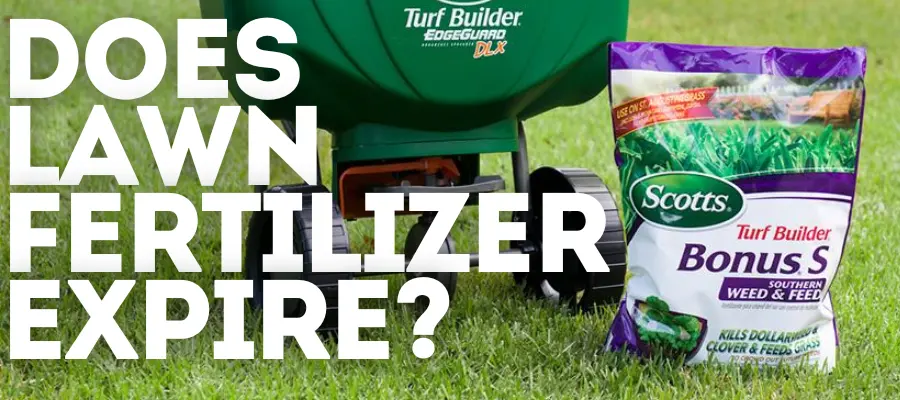It’s the end of the lawn season—a time of mixed emotions. Your grass looks lush and vibrant, and you’ve put in a lot of effort throughout the year. But now it’s time to store your lawn mowers and store fertilizers.
The question is, “Does lawn fertilizer expire?” In this article, we’ll explore the shelf life of different fertilizers, how to store them, and what you need to know to keep your lawn thriving.
Does lawn fertilizer expire?
Let’s tackle the big question: Does lawn fertilizer expire? The answer depends on the type of fertilizer and how it is stored.
General Shelf Life of Fertilizers
Fertilizers, in general, have varying shelf lives based on their composition and storage conditions. Here’s a breakdown:
| Fertilizer Type | Shelf Life | Storage Recommendations |
|---|---|---|
| Granular | Indefinite if kept dry | Store in a dry, cool place |
| Liquid | 8-10 years if not frozen | Keep indoors during winter to prevent freezing |
| Organic | 1-5 years depending on the type | Store in a cool, dry place, away from direct sunlight |
| Synthetic | 3-8 years | Store properly to maintain effectiveness |
Granular Fertilizers
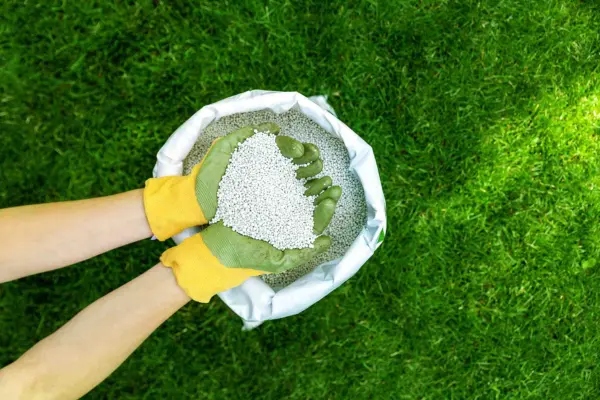
Granular fertilizers, like those from Scott’s, can last indefinitely as long as they are kept dry. Moisture can cause them to clump, reducing their effectiveness. Here’s how to store them:
Storage Tips: Use a Rubbermaid bin or a similar container to keep moisture away. Store them off the ground, like on a shelf, to avoid any contact with wet surfaces.
Liquid Fertilizers
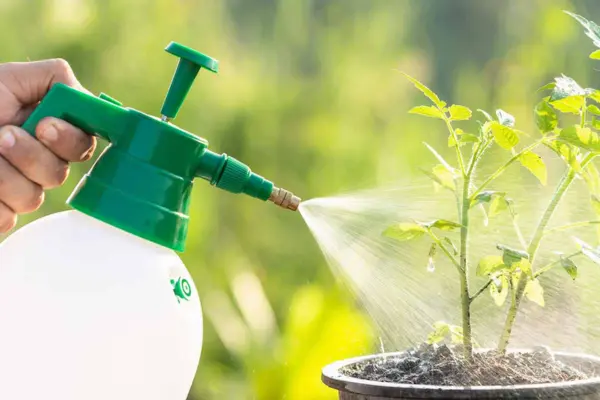
Liquid fertilizers have a shelf life of about 8-10 years if stored properly. It’s crucial not to let them freeze, as freezing can break down their chemical structure and render them ineffective.
Storage Tips: Keep liquid fertilizers indoors during the winter to prevent freezing. Store them in a cool, dry place, away from direct sunlight.
Organic Fertilizers
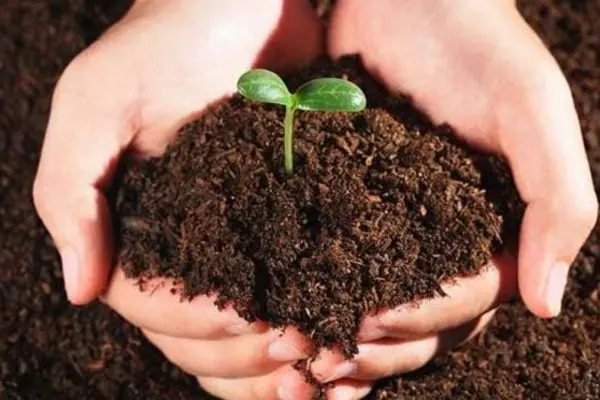
Organic fertilizers generally have a shorter shelf life. They are made from natural materials that can break down over time.
Shelf life ranges from 1-5 years, depending on the ingredients and processing. They require more careful storage to maintain their effectiveness. Keep them cool and dry to prevent degradation.
How to Tell If Your Fertilizer Has Expired
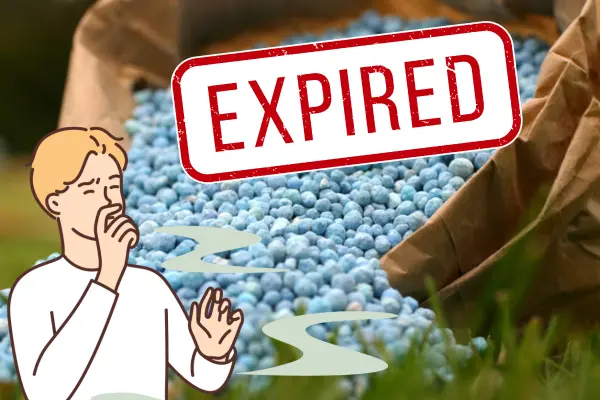
Expired fertilizers can harm your lawn and the environment, so it’s important to recognize the signs of expiration. Here’s what to look for:
Visual Signs
Clumping: Granular fertilizers may clump if they absorb moisture.
Color Changes: Changes in color can indicate chemical breakdown.
Smell and Consistency
Unpleasant Odors: A bad smell may indicate spoilage, especially in organic fertilizers.
Separation: Liquid fertilizers may separate or become cloudy if expired.
Effectiveness
Reduced Results: Expired fertilizers may not provide the expected results, leading to poor plant growth.
Harmful Effects: Using expired fertilizers can damage plants and leach harmful chemicals into the soil.
Storage Tips to Extend Fertilizer Shelf Life
Proper storage is key to extending the shelf life of your fertilizers. Here are some tips to ensure they remain effective:
Ideal Storage Conditions
Cool, Dry Places: Avoid areas with high humidity or temperature fluctuations.
Airtight Containers: Use sealed containers to prevent moisture ingress.
Special Considerations for Different Types of Fertilizers
Granular Fertilizers: Keep them away from moisture to prevent clumping.
Liquid Fertilizers: Prevent freezing and extreme temperatures by storing them indoors.
Importance of Proper Labeling
Track Purchase Dates: Keep a record of when you bought the fertilizers.
Rotate Stock: Use older fertilizers first to ensure freshness.
Buying and Using Fertilizers Wisely
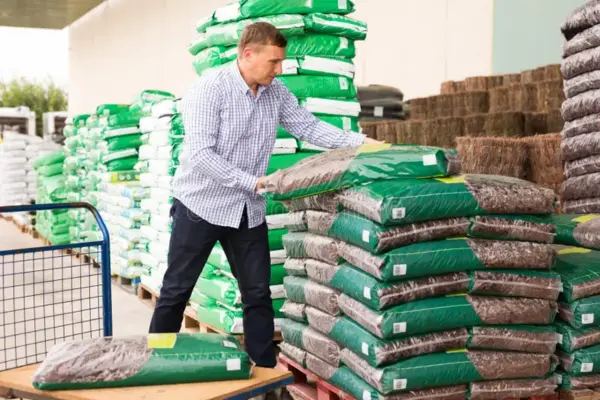
Fertilizers can be an investment, so buying and using them wisely is essential. Here’s how to make the most of your purchases:
Purchasing Tips
Buy in Bulk: Take advantage of seasonal sales and discounts without worrying about expiration.
Consider Your Needs: Assess your lawn’s requirements and purchase accordingly.
Using Leftover Fertilizer
Plan Ahead: Use leftover fertilizers before buying new ones.
Incorporate into Routine: Integrate older fertilizers into your lawn care practices to prevent waste.
Conclusion: Does Lawn Fertilizer Expire?
Storing your lawn fertilizer properly is crucial to ensure it doesn’t expire and remains effective. By understanding the different types of fertilizers and their shelf lives, you can make informed decisions and maintain a beautiful, healthy lawn year-round.

